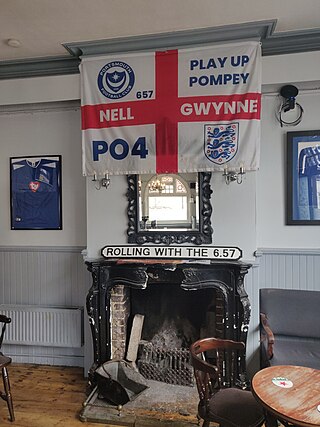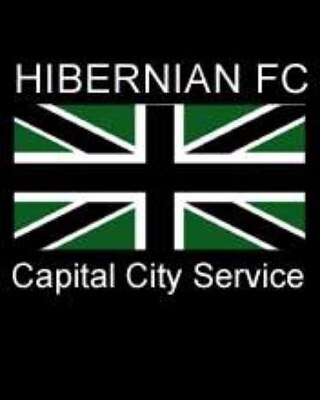
Football hooliganism, also known as soccer hooliganism, football rioting or soccer rioting, constitutes violence and other destructive behaviors perpetrated by spectators at association football events. Football hooliganism typically involves conflict between pseudo-tribes, formed to intimidate and attack supporters of other teams. Certain clubs have long-standing rivalries with other clubs and hooliganism associated with matches between them can be more severe. An example of this is the Devon Derby . Conflict may arise at any point, before, during or after matches and occasionally outside of game situations. Participants often select locations away from stadiums to avoid arrest by the police, but conflict can also erupt spontaneously inside the stadium or in the surrounding streets. In extreme cases, hooligans, police and bystanders have been killed, and riot police have intervened. Hooligan-led violence has been called "aggro" and "bovver".

The Chelsea Headhunters are a notorious English football hooligan firm linked to the London football club Chelsea.
The Zulu Warriors are a football hooligan firm associated with English football club, Birmingham City. The Zulu Warriors were formed in the late 1980s and the name allegedly came from a chant of "Zulu, Zulu" which Manchester City fans aimed at Birmingham in 1982, due to their multicultural following. However, both the "Zulu" chant and the term "Zulu Warriors", in the context of a fan following rather than as an organised gang, were in use from at least the mid 1970s.

The Leeds United Service Crew are a football hooligan firm linked to the English EFL Championship team, Leeds United F.C. The Service Crew were formed in 1974 and are named after the ordinary public service trains that the hooligans would travel on to away matches, rather than the heavily policed, organised football special trains. The Service Crew are one of the most notorious hooligan firms in the history of English football.

The Muckers are a football hooligan firm linked to the football club Blackpool F.C. They take their name from the word mucker, a colloquialism meaning good friend.
Section 5 are a football hooligan firm associated with Championship football club West Bromwich Albion F.C. Whilst Albion have had several other firms since the 1960s, including Clubhouse and the Smethwick Mob, Section 5 is the largest, with activity peaking in the 1980s and 1990s.
The Millwall Bushwackers are a football firm associated with Millwall Football Club. Millwall have a historic association with football hooliganism, which came to prevalence in the 1970s and 1980s, with a firm known originally as F-Troop, eventually becoming more widely known as the Millwall Bushwackers, who were one of the most notorious hooligan gangs in England. On five occasions The Den was closed by the Football Association and the club has received numerous fines for crowd disorder. Millwall's hooligans are regarded by their rivals as amongst the stiffest competition, with Manchester United hooligan Colin Blaney describing them as being amongst the top four firms in his autobiography 'Undesirables', and West Ham hooligan Cass Pennant featuring them on his Top Boys TV YouTube channel, on which their fearsome reputation for violence was described.
The MIGs are a football hooligan "firm" associated with the English football club Luton Town, which was originally formed in the 1980s.

Het Legioen is the name of the supporters and fans of Dutch football club Feyenoord Rotterdam.
The Suicide Squad was an association football hooligan firm linked to Burnley Football Club. The self-imposed title is derived from previous behaviour at away games where the single-minded involvement in violence against overwhelming odds could be described as suicidal. The name became synonymous with the group during the early 1980s.
Football hooliganism in Poland first developed as a recognised phenomenon in the 1970s, and has continued since then with numerous recognised hooligan firms and large-scale fights. Until 1997, the number of related incidents rose, according to Przemysław Piotrowski of Jagiellonian University. The problem of hooliganism related to football has been compared to what he described as the dark days of football hooliganism in Eastern Europe in the 1980s. Hooliganism in Poland is considered to be on a larger scale than hooliganism in Britain. Many Polish football clubs have hooligan firms associated with them.

The 6.57 Crew is an English football hooligan firm and vigilante group linked to Portsmouth F.C. The name, 6.57 Crew is taken from the time that the Portsmouth to London Waterloo train left Portsmouth and Southsea station. The firm were one of the most active firms in the 1980s.
Aston Villa Hardcore is a football hooligan firm associated with the Premier League club Aston Villa, based in Birmingham, England.

The 1985 Luton riot occurred before, during and after a 1984–85 FA Cup sixth-round football match between Luton Town and Millwall on 13 March 1985 at Luton Town's Kenilworth Road ground in Luton, Bedfordshire, England. It was one of the worst incidents of football hooliganism during the 1980s, and led to a ban on away supporters by Luton Town which lasted for four seasons. This itself led to Luton's expulsion from the Football League Cup during the 1986–87 season. The club also began to enforce a membership card scheme, which Margaret Thatcher's government attempted to have adopted at grounds across England. Kenilworth Road was damaged, along with the surrounding area, and a year later was converted to an all-seater stadium.

The Capital City Service (CCS) is a Scottish football hooligan firm associated with Hibernian F.C. and active from 1984 when the casual hooligan subculture took off in Scotland. Their roots were in the previous incarnations of hooligan groups attached to the club and also the wider Edinburgh and surrounding area's gang culture. They are more commonly known in the media and amongst the public as the Hibs Casuals, although within the hooligan network they may also be referred to as Hibs Boys.
The 2000 UEFA Cup Final Riots, also known as the Battle of Copenhagen, were a series of riots in City Hall Square, Copenhagen, Denmark between fans of English football team Arsenal and Turkish team Galatasaray around the 2000 UEFA Cup Final on 17 May 2000. Four people were stabbed in the scuffles, which also involved fans from other clubs and were viewed by the media as part of a retaliation for the killing of two Leeds United fans by Galatasaray supporters the month before.

Beginning in at least the 1960s, the United Kingdom gained a reputation worldwide for football hooliganism; the phenomenon was often dubbed the British or English Disease. However, since the 1980s and well into the 1990s the UK government has led a widescale crackdown on football related violence. While football hooliganism has been a growing concern in some continental European countries in recent years, British football fans now tend to have a better reputation abroad. Although reports of British football hooliganism still surface, the instances now tend to occur at pre-arranged locations rather than at the matches themselves.

The Capital City Service (CCS) is a Scottish football hooligan firm associated with Hibernian and active from 1984 when the casual hooligan subculture took off in Scotland. Their roots were in the previous incarnations of hooligans attached to the club and also the wider Edinburgh and surrounding areas gang culture. They are more commonly known in the media and amongst the public as the Hibs Casuals though within the hooligan network they may also be referred to as Hibs boys.

The UEFA Euro 2016 football championships in France saw several recorded instances of football hooliganism and related violence between fans, both at the venues where matches took place, and in cities near the participating stadiums. The violence started immediately before the tournament began, and involved clashes between several countries. Some of the rioting came from established gangs and football hooligan organisations, which deliberately intended to provoke violence. They clashed with riot police who controlled the crowds using tear gas and a water cannon.
Seaburn Casuals are a football hooligan firm associated with the English football club, Sunderland A.F.C. The group's activity was prominent in the 90s and the early 00s, with the club being involved in some of the most violent incidents in British hooligan history, in what was described as "some of the worst football related fighting ever witnessed in the United Kingdom," and sometimes topping the football arrests table.










